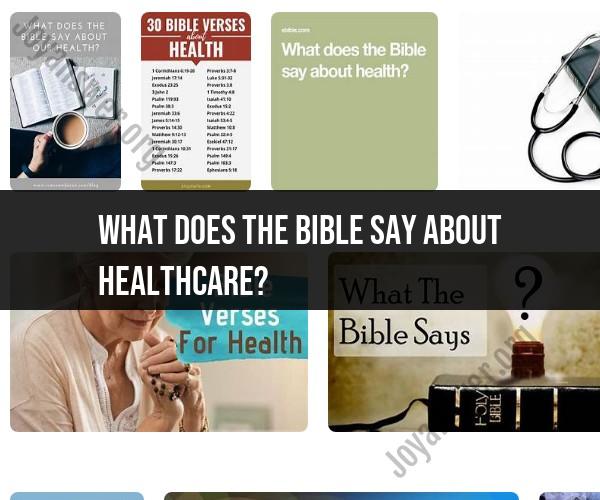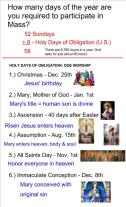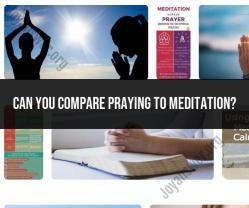What does the Bible say about healthcare?
The Bible contains various teachings and principles related to health and healthcare, although it doesn't provide a comprehensive guide to modern healthcare practices. Instead, it offers moral and spiritual guidance that can be applied to aspects of health and well-being. Here are some key lessons and teachings from the Bible related to healthcare:
Caring for the Sick: The Bible emphasizes the importance of caring for the sick. In the New Testament, Jesus performed numerous healing miracles, demonstrating compassion and the importance of helping those who are unwell. James 5:14-15 (NIV) encourages believers to pray for the sick and anoint them with oil.
Maintaining Good Health: The Bible encourages the responsible stewardship of one's body. 1 Corinthians 6:19-20 (NIV) states, "Do you not know that your bodies are temples of the Holy Spirit, who is in you, whom you have received from God? You are not your own; you were bought at a price. Therefore, honor God with your bodies." This passage underscores the importance of maintaining good health.
Dietary Guidelines: The Bible provides dietary guidelines in the Old Testament, particularly in Leviticus and Deuteronomy. These guidelines include clean and unclean animals, dietary restrictions, and principles related to food preparation and consumption. While these guidelines were given to the Israelites for specific purposes, some individuals incorporate them into their dietary choices for health reasons.
Prayer and Healing: The Bible acknowledges the power of prayer and faith in healing. Mark 11:24 (NIV) states, "Therefore I tell you, whatever you ask for in prayer, believe that you have received it, and it will be yours." This verse and others highlight the role of faith and prayer in seeking healing.
Moderation: The Bible promotes moderation in various aspects of life, including eating and drinking. Proverbs 23:20-21 (NIV) advises, "Do not join those who drink too much wine or gorge themselves on meat, for drunkards and gluttons become poor, and drowsiness clothes them in rags." These verses caution against excess.
Stress and Anxiety: The Bible addresses stress and anxiety, acknowledging their impact on health. Philippians 4:6-7 (NIV) encourages believers to "not be anxious about anything, but in every situation, by prayer and petition, with thanksgiving, present your requests to God. And the peace of God, which transcends all understanding, will guard your hearts and your minds in Christ Jesus."
Community and Support: The Bible emphasizes the importance of community and support during times of illness or hardship. Galatians 6:2 (NIV) instructs believers to "carry each other's burdens, and in this way, you will fulfill the law of Christ."
It's important to note that the Bible's teachings on healthcare are primarily spiritual and moral in nature. While they provide guidance on principles of compassion, self-care, and community support, they do not offer specific medical advice or modern healthcare practices. Many individuals and healthcare professionals draw on these principles as part of their overall approach to health and well-being, integrating faith and spirituality into their healthcare decisions and practices.
Healthcare in the Bible: Lessons and Teachings
The Bible contains a number of lessons and teachings on healthcare. One of the most important lessons is that God cares about our health and well-being. In Exodus 15:26, God says, "I am the Lord who heals you." This passage shows that God is not only interested in our spiritual health, but also in our physical health.
The Bible also teaches us that we should care for our own health and the health of others. In 1 Corinthians 6:19-20, Paul writes, "Do you not know that your bodies are temples of the Holy Spirit, who is in you, whom you have received from God? You are not your own; you were bought at a price. Therefore honor God with your bodies." This passage teaches us that our bodies are important and that we should take care of them.
The Bible also contains a number of specific teachings on healthcare. For example, in Leviticus 11-15, God gives the Israelites detailed instructions on how to maintain good hygiene and prevent disease. These instructions are still relevant today, and they can help us to stay healthy.
Biblical Perspectives on Health and Healing
The Bible has a holistic view of health and healing. It sees health as not only the absence of disease, but also the presence of well-being in all areas of life, including the physical, mental, emotional, and spiritual.
The Bible also teaches that God is the ultimate source of healing. In Exodus 15:26, God says, "I am the Lord who heals you." This passage shows that God is the one who gives us the power to heal, both physically and spiritually.
The Bible also emphasizes the importance of prayer in healing. In James 5:14-16, James writes, "Is anyone among you sick? Let him call for the elders of the church, and let them pray over him, anointing him with oil in the name of the Lord. And the prayer of faith will save the one who is sick, and the Lord will raise him up. And if he has committed sins, he will be forgiven." This passage teaches us that we can pray for ourselves and others who are sick, and that God will answer our prayers.
The Bible and Healthcare: Insights from Scripture
The Bible provides a number of insights into healthcare. One of the most important insights is that healthcare is a gift from God. In Exodus 15:26, God says, "I am the Lord who heals you." This passage shows that God is the one who gives us the power to heal, and that we should be grateful for this gift.
Another important insight from the Bible is that healthcare is a responsibility. In 1 Corinthians 6:19-20, Paul writes, "Do you not know that your bodies are temples of the Holy Spirit, who is in you, whom you have received from God? You are not your own; you were bought at a price. Therefore honor God with your bodies." This passage teaches us that we should take care of our bodies and our health, because they belong to God.
Finally, the Bible teaches us that healthcare is a matter of compassion. In Matthew 9:35-36, Jesus says, "And Jesus went throughout Galilee, teaching in their synagogues and proclaiming the gospel of the kingdom and healing every disease and every affliction among the people. When he saw the crowds, he had compassion on them, because they were harassed and helpless, like sheep without a shepherd." This passage shows that Jesus cared about the physical and emotional needs of the people, and that we should do the same.
The Bible has a lot to say about healthcare. It teaches us that God cares about our health and well-being, that we should care for our own health and the health of others, and that prayer is important in healing. The Bible also provides a number of insights into healthcare, such as the fact that healthcare is a gift from God, a responsibility, and a matter of compassion.












